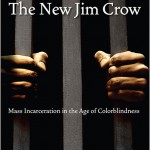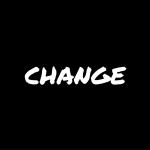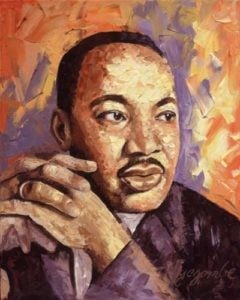When I first read Michelle Alexander’s book, The New Jim Crow, I immediately assigned it for my classes and told anybody who would listen to me that Chapter 3 alone was worth buying the book. In chapter 3, Alexander demonstrated how the entire criminal justice system is stance against poor people of color—especially African Americans. After reading how the justices ruled in McCleskey v. Kemp , the decision that effectively eliminated challenges to racial bias claims in jurisprudence, one can understand how the court led the way to the incarceration of many black and brown people.
However, there was something else that moved me about the book. It was Alexander’s realization (or should I say awakening) about the criminal justice system. In the introduction to the book, Alexander shared with her readers how she came to write this book. She writes that she first encountered a new racial system when a sign caught her attention: THE DRUG WAR IS THE NEW JIM CROW. While she acknowledged that the criminal justice system was “racist in many ways,” she, as a lawyer about to start a new job with the ACLU, dismissed the sign. She believed that it did not help for people to make an “absurd comparison” because “people will just think you’re crazy.” Again, she assumed that the “criminal justice system had problems of racial bias, much in the same way that all major institutions in our society [were] plagued with problems associated with conscious and unconscious bias.”
However, after her stint at the ACLU, her position radically changed. As she wrote in the Introduction of her book:
By the time I left the ACLU, I had come to suspect that I was wrong about the criminal justice system. It was not just another institution infected with racial bias but rather a different beast entirely. The activists who posted the sign on the telephone pole were not crazy; nor were the smattering of lawyers and advocates around the country who were beginning to connect the dots between our current system of mass incarceration and earlier forms of social control. Quite belatedly, I came to see that mass incarceration in the United States had, in fact, emerged as a stunningly comprehensive and well-disguised system of racialized social control that functions in a manner strikingly similar to Jim Crow. In my experience, people who have been incarcerated rarely have difficulty identifying the parallels between these systems of social control. Once they are released, they are often denied the right to vote, excluded from juries, and relegated to a racially segregated and subordinated existence. Through a web of laws, regulations, and informal rules, all of which are powerfully reinforced by social stigma, they are confined to the margins of mainstream society and denied access to the mainstream economy. They are legally denied the ability to obtain employment, housing, and public benefits—much as African Americans were once forced into a segregated, second-class citizenship in the Jim Crow era.
When I facilitated a study of the book, we focused our attention here and asked, “What did it mean for a person to come to grips with a new reality?” Many in our book study new exactly where Alexander was coming from because at one time, many of them did not believe that the system was so sinister. The reason why they were part of our study was because they wanted a better understanding of the criminal justice system and hoped that the book would help with that.
Others however, were frustrated that someone who was part of the system did not understand how the system REALLY worked. Some of the people that were a part of our book study were those same types of people who were in the streets proclaiming that the “drug war” was the New Crow. They saw and lived it every day. They were also the ones at our church meeting to discuss about the injustice of the drug war and how it robbed citizens of their rights. In short, some in the group, while pleased that Alexander now saw the drug war as they did, lamented the fact that it took a while for her to get there.
I saw, however, something else in Alexander’s mea culpa. A better way to put this is that I heard something else. I saw and heard a person, who after seeing a new reality, had to wrestle with and come to grips with what she knew to be truth. I told the group that Alexander had an epiphany of sorts—akin to a religious experience—that helped her see what she may have not seen before. Therefore, after some major reflection, questioning, probing from others and remembering the voices she dismissed along the way who tried to reflect truth, she accepted and affirmed the truth.
I also said at that time that the book was therapeutic for her and I would not be surprised if we see her make some major moves in this area. At the time, I felt that after reading the book, I was reading someone struggling with call—someone who knew she had much work to do that went way beyond just book promotion—someone who knew that her current position was no longer tenable and someone wrestling with the next step in her life. In short, she had caught hold of something that she could not shake away.
So it did not surprise me when I read that she was leaving her job as a law professor at Ohio State University and joining the faculty at Union Theological Seminary as a Visiting Professor. In her Facebook post that announced the decision she wrote about the need to “stretch” herself and “moving” out of her “comfort zones.” She wrote that she felt “compelled to change course” and “walk away from the law.” In wrestling with her decision to resign her position as Law professor to “teach and study at a seminary,” Alexander wrote:
There is no easy answer to this question, and there are times I worry that I have completely lost my mind. Who am I to teach or study at a seminary? I was not raised in a church. And I have generally found more questions than answers in my own religious or spiritual pursuits. But I also know there is something much greater at stake in justice work than we often acknowledge. Solving the crises we face isn’t simply a matter of having the right facts, graphs, policy analyses, or funding. And I no longer believe we can “win” justice simply by filing lawsuits, flexing our political muscles or boosting voter turnout. Yes, we absolutely must do that work, but none of it — not even working for some form of political revolution — will ever be enough on its own. Without a moral or spiritual awakening, we will remain forever trapped in political games fueled by fear, greed and the hunger for power.
As a pastor of an urban church with members “on paper,” and/or “in the system,” and as a professor at a university and seminary, I hear Michelle Alexander. I hear her as a person who has on occasion asked “Have I lost my everlasting mind?” I hear her as one who is after 18 years in ministry (15 as pastor) and over 10 years teaching, who has asked the question that Moses asked so long ago, “Who am I?” I hear her as a person who was not raised in the church but somehow still discerned call and eventually went and served. I hear her as one who still have questions myself and sometimes even cry out with the psalmist, “How long Lord, how long?” I hear Michelle Alexander, but more importantly, I am glad she heard that still voice inside of her—the one that beckons us not only to come, but also go. I just wish more would hear and serve.
Andre E. Johnson is the Founder and Managing Editor of R3
Donate to the Work of R3
Like the work we do at Rhetoric Race and Religion? Please consider helping us continue to do this work. All donations are tax-deductible through Gifts of Life Ministries/G’Life Outreach, a 501(c)(3) tax exempt organization, and our fiscal sponsor. Any donation helps. Just click here to support our work.













